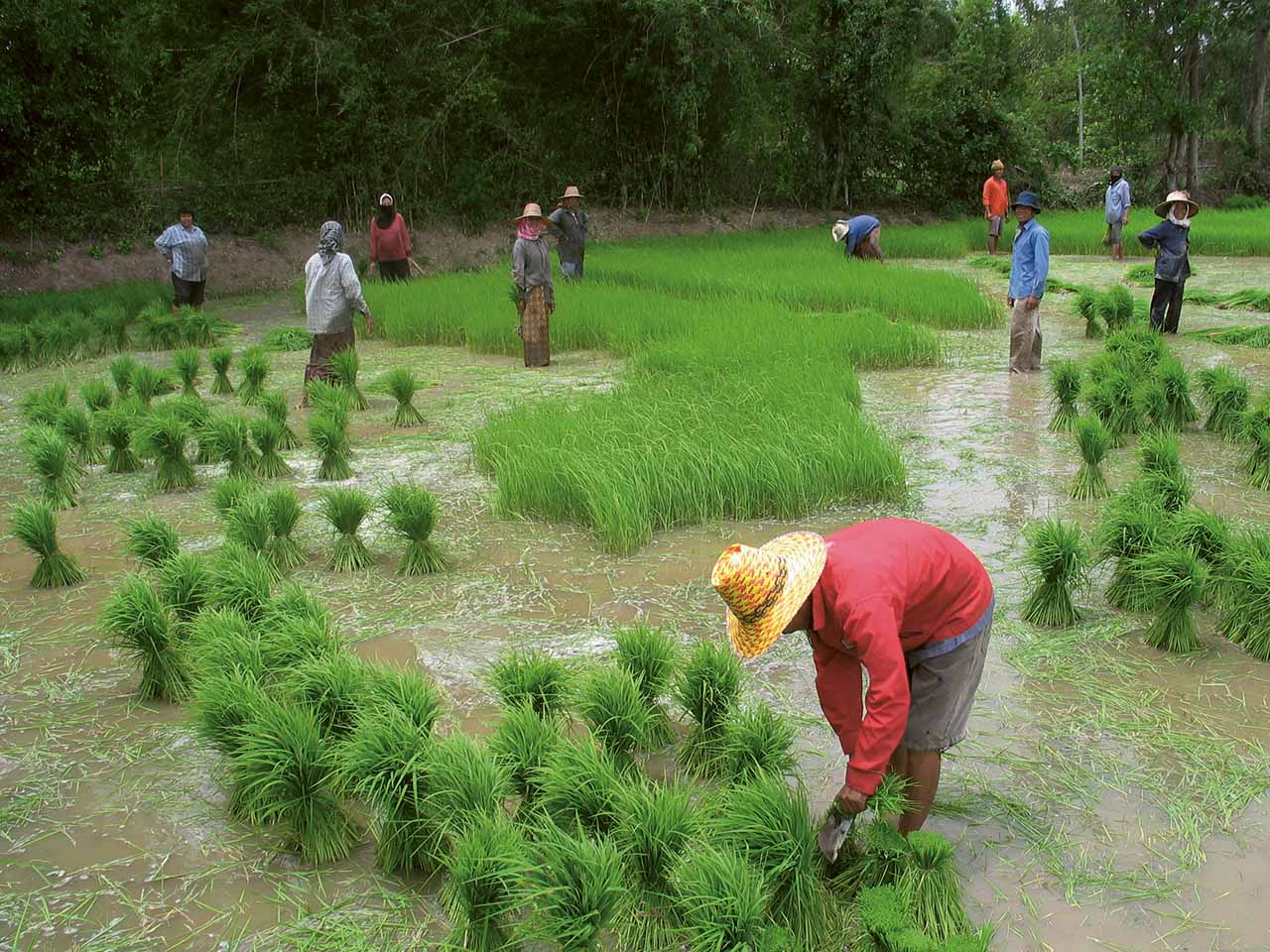Montpellier, a breeding ground for the agriculture of tomorrow
With their eyes turned toward the South, 2,500 researchers in Montpellier are inventing the agricultural models of tomorrow, combining the rediscovery of ancestral techniques with the contribution new technologies.
Laurent Bruckler is categorical: "There is no longer any agronomy that does not take the environment into account."The president of the INRA Occitanie-Montpellier center traces the evolution of a discipline that has undergone profound change. "Before the 1970s, the focus was on feeding the country in a context of post-war reconstruction. The emphasis was therefore on fertilization, crop protection, and artificialization of the environment. Then came the realization of the consequences of agriculture on the environmental crisis and on health. A long period of transition led to the widespread adoption of new principles in the early 2000s, based on a global understanding that took into account issues such as climate change, demographics, and threats to biodiversity."

Jean-Luc Maeght © IRD
Bio-inspired agriculture
A slow evolution that has led to the emergence of new concepts, such as the very topical one ofagroecology. "Agroecology consists of using biologicalmechanisms present in nature to benefit agricultural production: taking inspiration from a forest environment that maintains itself through internal fertilization, using the microbial biomass already present in the soil to fix nitrogen, etc.," explains the research director.
"The productivist approach focused solely on the study of the plot," confirms Marie-Laure Navas. "Today, on the contrary, we are led to work in relation to a watershed, a landscape or even a region in order to integrate these environmental dimensions. Agroecology reflects this. The issues are more complex. We no longer talk about agriculture in the singular, but in the plural," notes the deputy director of training and scientific policy at SupAgro Montpellier. Located north of Arceaux on the La Gaillarde campus, this prestigious school trains the future leaders of French agronomy. On the campus, which houses the INRA premises, vines and greenhouses are springing up like mushrooms, forming an unexpected oasis of greenery just a stone's throw from the city center.
Lavalette: agricultural Tower of Babel
The La Gaillarde site is not the only hub for agronomy in Montpellier. On the other side of the city, at the foot of the Lunaret zoo, the Lavalette campus sees hundreds of researchers come together every day, many of whom come from countries in the Global South.
This unique feature is what makes the site so valuable, explains Michel Salas, regional director of CIRAD: "The key word for us is partnership. We work with and for the South, not in a top-down approach but rather in full cooperation."For the researcher, we need to move away from an archaic view of North/South relations. "The South is a huge reservoir of know-how, different approaches, and genetic material to be explored. Innovative techniques are also being developed in the South. For example, planting under plant cover has been practiced in Brazil for over 20 years, " notes Michel Salas. "Working for the South means working for the planet. What happens in the South has repercussions in the North: the level of development of Southern countries has a strong impact on the present and future of the entire planet," summarizes the researcher. To refine its international strategy, the site can also count on the presence ofthe French National Research Institute for Sustainable Development (IRD), whose researchers, located around the globe, bring valuable expertise to development projects.
A veritable Tower of Babel, Lavalette has one of the world's richest genetic collections of rice, cocoa, rubber trees, sugar cane, and more. In high-security confinement greenhouses, researchers also study the relationships between plants and parasites, which are also being disrupted by climate change.
World capital
Proof of Montpellier's key role in agricultural research, the Lavalette campus has been home to the headquarters of the Consultative Group on International Agricultural Research(CGIAR) since 2014. This international organization, which coordinates more than 8,000 people and 15 research centers around the world, chose Montpellier over other candidates such as Rome and New Delhi as the location for its headquarters. This recognition is commensurate with Montpellier's status as the world capital of agricultural research.
I-SITE MUSE
 " Feed, care for, protectThree global challenges for the 21st century at the heart of I-SITE MUSE.
" Feed, care for, protectThree global challenges for the 21st century at the heart of I-SITE MUSE.
The MUSE project (Montpellier University of Excellence) brings together 19 institutions with a shared ambition: to establish a research-intensive thematic university in Montpellier that is internationally recognized for its impact in the fields of agriculture, the environment, and health, and which will become a close academic partner for all members of the consortium, providing them with significant benefits.